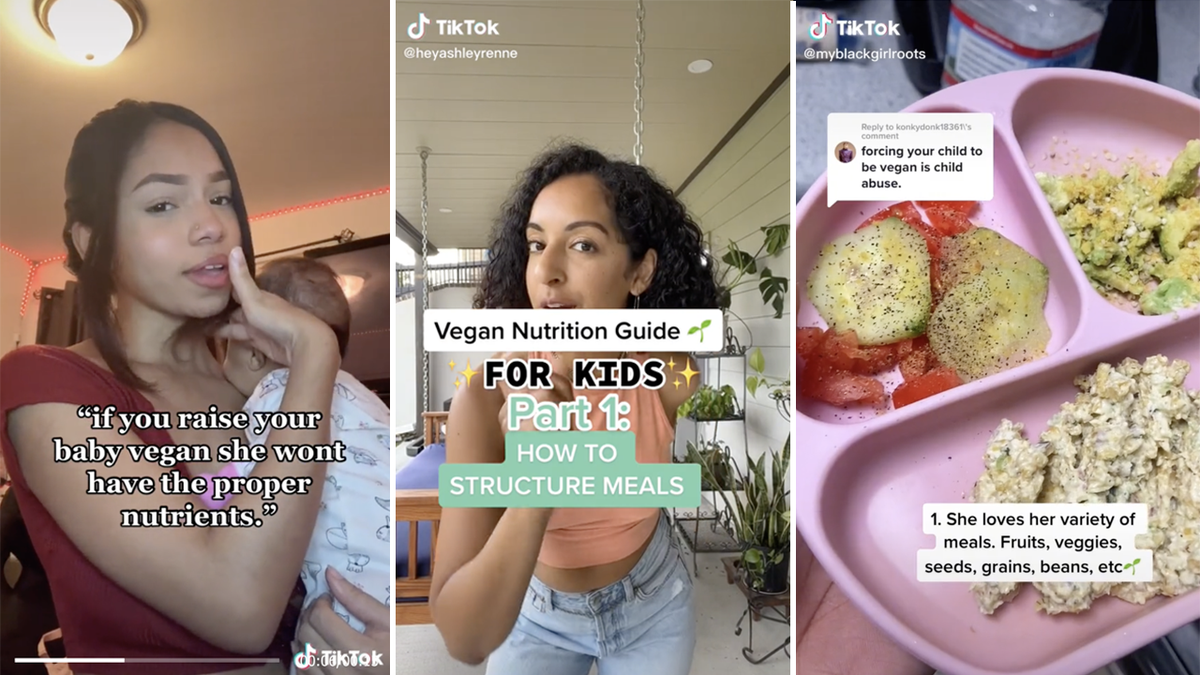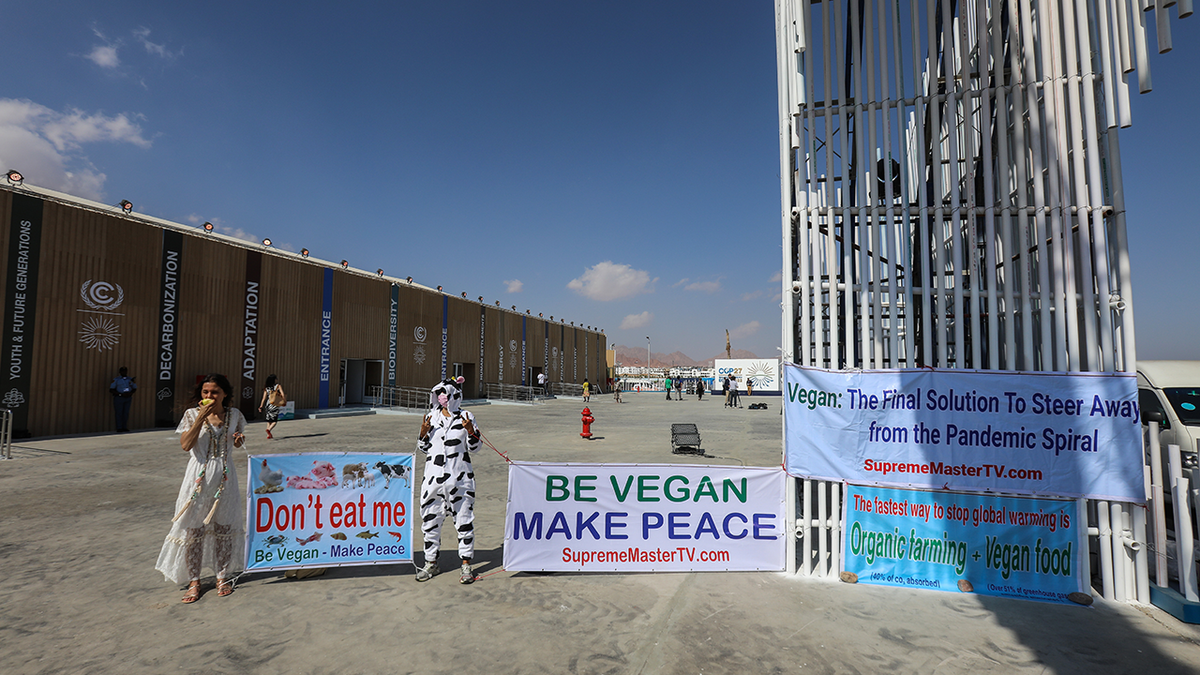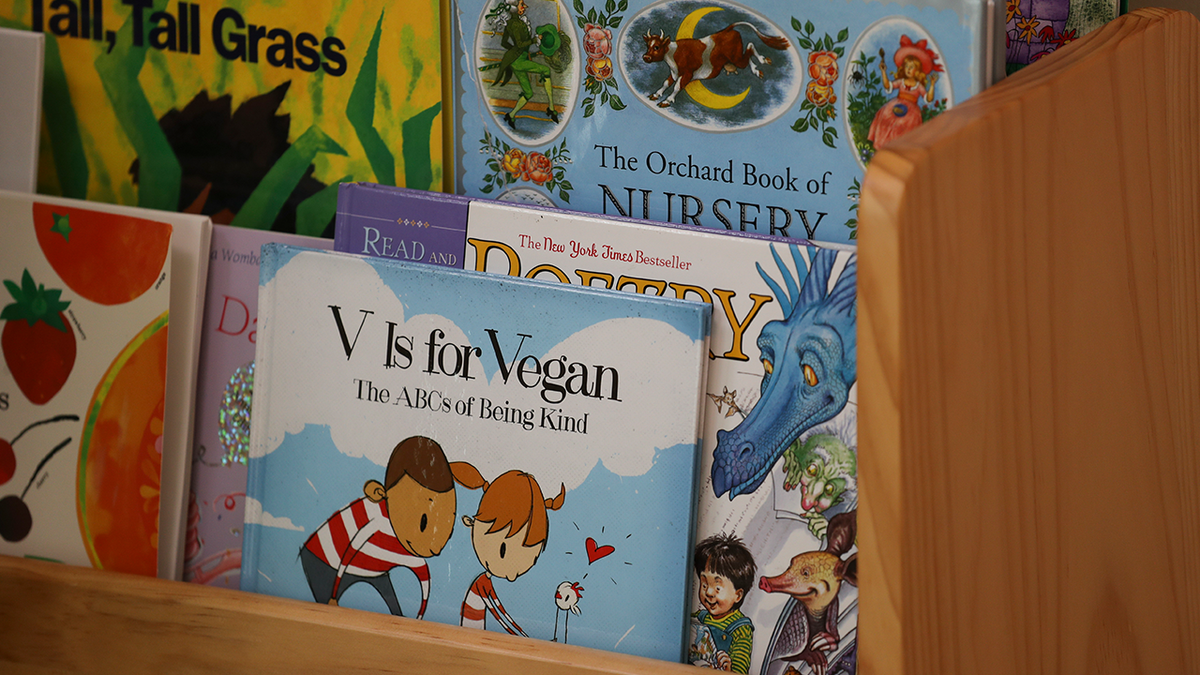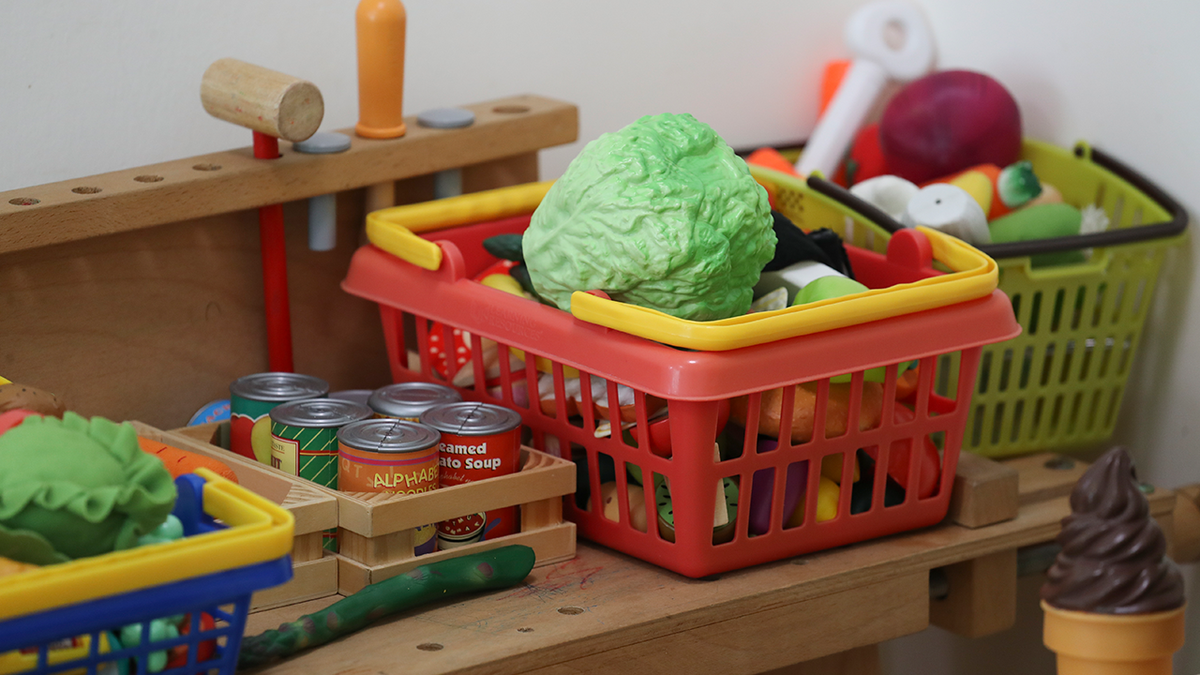Jesse Watters: Mini-Madoff claims he's too vegan for jail
Fox News host Jesse Watters shares how members of the Democratic Party are trying to 'white-wash' donations from Sam Bankman-Fried and offers an update on his time in jail on 'Jesse Watters Primetime.'
The vegan diet has seen a rise in popularity with many new parents opting to raise their children vegan too, but some dietitians and researchers are raising concerns about the diet for infants, which they warn could lead to serious health complications that can stunt growth and put them at risk for nutrient deficiencies.
The vegan diet has sparked controversy on TikTok, with many mothers claiming they plan to raise their children as vegans. Under the hashtag #VeganBaby, many mothers are detailing the perceived benefits of raising their infants and toddlers as vegan, and explaining what the children eat in a day.
Many critics of the #VeganBaby trend, though, have raised concerns about complications a child could experience later in life should they decide they no longer want to live a vegan lifestyle.
SHOULD YOU RAISE YOUR CHILD AS A VEGAN OR VEGETARIAN? NUTRITIONISTS WEIGH IN

Many moms on TikTok are touting vegan diets for their infants and toddlers. (TikTok/@cccherrybomb.c, @myblackgirlroots, @heyashleyrenne)
"Children eat such small portions when being introduced to solids and to limit their choices of foods that could potentially help them grow and thrive seems like an unnecessary risk to me when we know how dangerous nutrient deficiencies during this time period can be," pediatric dietitian Cinthia Scott told Fox News Digital. "The first two years are critically important to ensure adequate nutritional intake since it is a period of rapid growth and development that shapes long-term health."
If children are deficient in many necessary nutrients, Scott said the impacts of the deficiencies aren't usually seen until later on in life. She said her aims to prevent these nutritional deficits and optimize infant growth, especially their neurodevelopment growth which occurs during the first few years of life and can impact long-term health.

A group of vegan activists demonstrate in front of the International Convention Center as the UN climate summit COP27 held in Sharm el-Sheikh, Egypt on November 07, 2022. (Photo by Mohamed Abdel Hamid/Anadolu Agency via Getty Images) ((Photo by Mohamed Abdel Hamid/Anadolu Agency via Getty Images))
Scott said that as a pediatric dietitian, she has seen a rise in parents opting for a vegan lifestyle for their baby, which she suspects is likely because many people hold the belief that meat leads to health diseases or because of concerns they have about the welfare of animals.
"I believe that many parents are not provided education on the importance of adequate iron, fat, and B12 intake in the first two years of life and believe that adhering to a plant-based diet is a healthier alternative for their children," Scott said.
Iron deficiency is the most common nutrient deficiency in children, even among those who are offered animal based products regularly, Scott said. Because iron deficiency can cause long-term neurological delays, it is "critically important to ensure adequate intake of in the first few years of life," she added.
Milk is typically a vital part of any young child's diet, but vegans opt for milk-alternatives and research on the best milk-alternative for babies is varied.
In England, the NHS states that infant formula based from either goat or cow milk "is the only suitable alternative to breast milk" for babies under 12 months old and a soy-based formula should only be used with medical advice, according to its recently updated "Start for Life" website.
After the age of 1, they believe it is suitable to give babies unsweetened, calcium-fortified, plant-based drinks like soy, oat or almond milk, according to the website under its "Vegetarian or vegan diets" category.
"It's important to remember that cows' milk and dairy foods are good sources of nutrients, so don't cut them out of your child's diet without first speaking to a GP or dietitian – they can advise you on suitable milk alternatives," the guidance stated.
The NHS also recognizes the potential nutrient deficiencies associated with a vegan or vegetarian diet.
BABY DIES AFTER MOTHER PUTS HIM ON ‘BIBLICAL DIET’ TO AVOID CARRYING ‘A FAT A-- CHILD’: REPORTS

'V is for Vegan' book, belonging to parent Emily Sim and her infant son Henry (NOT in picture), at their home, Pokfulam Road in Hong Kong on August 09, 2017. (Photo by Nora Tam/South China Morning Post via Getty Images) ((Photo by Nora Tam/South China Morning Post via Getty Images))
"Your baby might also need specific supplements in addition to the usual vitamin supplements recommended for all babies," the guidance said. "Babies who have a vegan diet or a vegetarian diet that doesn't include dairy or eggs, need a supplement containing vitamin B12, or foods with fortified B12."
A study conducted by the University College London (UCL) looked at 187 vegan, vegetarian and meat and dairy-eating children ages five to 10 and found that those on vegan diets were on average 1.2 inches shorter than their peers, according to research. Vegan children also had lower bone mineral content, but less body fat and lower levels of bad types of cholesterol.
Many vegans turn to supplements to ensure they are getting adequate vitamins and minerals, but Scott warned that nutrients found in supplements are not absorbed as efficiently as those in naturally occurring foods sources.
"While supplements are a helpful aid to ensure adequate nutritional intake for those adhering to a vegan diet or have a restrictive diet due to food allergies, without blood work and continuous monitoring it would be hard to say 100% that the supplements are filling the gaps," she said.
Jonathan Wells, professor and leader of the UCL study, recognized the different reasons many parents opt to raise vegan children, but warned there has historically been very little data to provide insight into the diet's health implications among children.
"We know that people are increasingly being drawn to plant-based diets for several reasons, including promoting animal welfare and reducing our impact on the climate," he said. "Indeed, a global shift towards plant-based diets is now recognized to be crucial for preventing climate breakdown, and we strongly support this effort."
HARVARD MEDICAL SCHOOL OFFERS COURSE ABOUT HEALTHCARE FOR LBGTQIA+ ‘INFANTS’
"We also know that until now research into the health impact of these diets on children has been largely limited to assessments of height and weight and conducted only in vegetarian children," he added. "Our study provides a substantial insight into the health outcomes in children following vegetarian and vegan diets."

Vegan related toys, belonging to parent Emily Sim and her infant son Henry (NOT in picture), at their home, Pokfulam Road in Hong Kong on August 09, 2017. (Photo by Nora Tam/South China Morning Post via Getty Images) ((Photo by Nora Tam/South China Morning Post via Getty Images))
Scott said she is not aware of "any science that shows that a child will not be able to properly digest foods they have not been exposed to," but she said it could lead to allergies.
"We do know that early allergen exposure is recommended so if we did opt to avoid exposing the child to foods like eggs or dairy until they are past the age of 12 months they would be considered higher risk for potential allergy to those avoided foods," she said.
The American Academy of Pediatrics (AAP) and the Academy of Nutrition and Dietetics (AND) have both determined that vegan diets are safe, but they don't go into much detail about best practices, especially for infants.
"North American guidelines suggest well-planned vegetarian and vegan diets are safe for people of all ages," according to a study conducted by the (AAP). "However, the Canadian Pediatric Society notes a vegetarian diet can be nutritionally adequate when milk and egg products are provided."
"Some European guidelines do not recommend vegan diet for children because of the risk of nutrient insufficiency without appropriate clinical follow-up, serum monitoring, and supplement use," the study added.
CLICK HERE TO GET THE FOX NEWS APP
The AND is in agreement that "appropriately planned vegetarian, including vegan, diets are healthful, nutritionally adequate, and may provide health benefits for the prevention and treatment of certain diseases," according to a statement from the organization. "These diets are appropriate for all stages of the life cycle, including pregnancy, lactation, infancy, childhood, adolescence, older adulthood, and for athletes."

